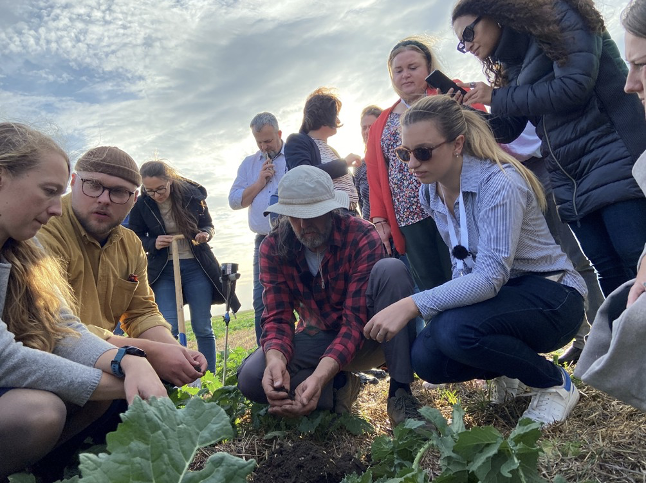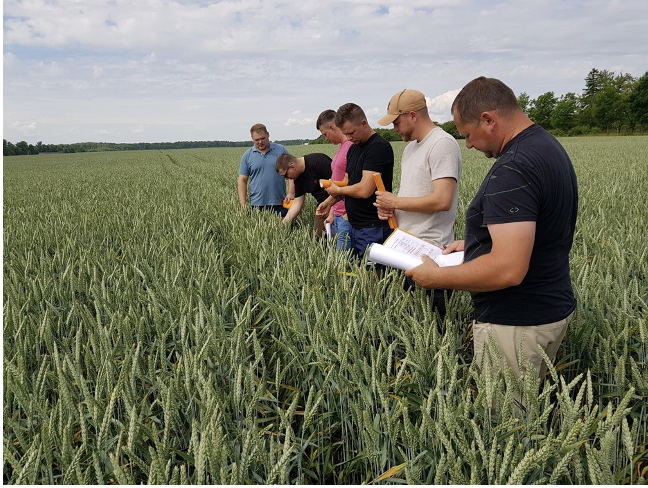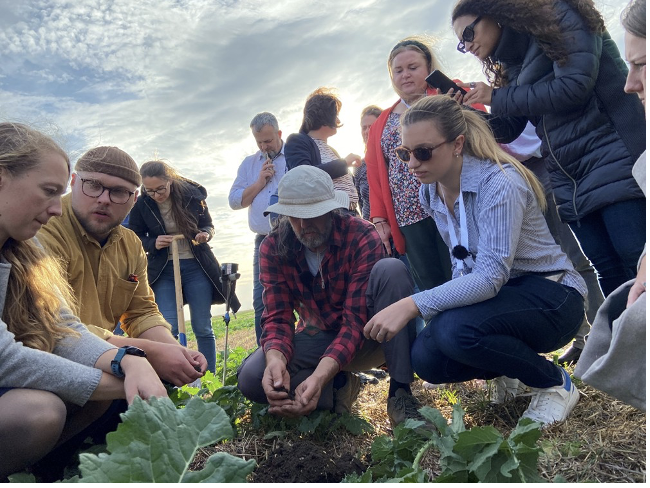2024

CAP regulations ask for the integration of impartial advisors into the AKIS framework to enhance knowledge transfer and innovation across the agricultural sector. In this context, impartial advisors play a critical role by providing unbiased, high-quality support to farmers and stakeholders. Establishing a formal registry and implementing a service quality assessment system are essential steps to meet regulatory requirements, ensuring advisors are well-qualified and that their guidance aligns with CAP objectives.
The Lithuanian Agricultural Agency, under the Lithuanian Ministry of Agriculture, set up a list of impartial advisors and defined a quality assessment of the service provided. This list is published online (in Excel format) and includes entities providing farm advisory services according to the selection criteria established at a national level by the Minister of Agriculture.
The procedure for including advisors in the list of impartial advisors is regulated by the document “Description of the Procedure for Compiling the List of Independent Agricultural Advisors” which also establishes the obligations of advisors, the conditions for removal of services, the procedure for evaluating the quality of services provided, in order to receive support under the dedicated intervention in the Lithuanian CAP Strategic Plan 2023-2027 and/or national support from programs administered by the Ministry.
Lithuania has long-standing experience with a register of impartial advisors. This circumstance has led to the Public Institution Lithuanian Agricultural Advisory Service (which employs around 350 independent advisors) taking a leading role in the advisory market, while other impartial advisory institutions have significantly fewer human resources for impartial services. The list of impartial advisors for farms has been freely accessible since February 2023, while prior to that, open lists of accredited advisors had been available since 2007.
Box 1: Lithuanian Agricultural Agency
The Agricultural Agency under the Ministry of Agriculture in Lithuania is a key agency responsible for managing agricultural support programs and fostering rural development initiatives in the country. It primarily oversees EU- funded agricultural payments, including subsidies for farmers and rural enterprises, as well as initiatives aligned with Lithuania's Strategic Plan for the EU’s Common Agricultural Policy (CAP) 2023-2027. This agency also focuses on ensuring the sustainability and competitiveness of Lithuanian agriculture, promoting the implementation of new technologies, and enhancing rural infrastructure and community projects.
To apply for inclusion in the list of impartial advisors in Lithuania, a natural or a legal person (advisor) must submit a request to the Agricultural Agency, indicating at least one area of advisory services that aligns with their knowledge, skills, and experience. If the advisors wish to specify multiple areas, they should rank them in order of priority, starting with the area that best matches their expertise and progressing to those that are less aligned. This information is published on the Agency's website on a monthly basis.
The advisor must meet at least one of the following conditions:
The advisor’s request is submitted to the Agricultural Agency, which reviews requests once every quarter.
Each year, the advisors must upgrade their qualifications in the areas they are listed for in the advisors list for at least 16 academic hours. The professional qualifications are upgraded through:
Training courses for farmers count towards the qualification upgrading requirement only for farmers and forest managers or their partners who are included in the advisors list and provide service.
The advisors themselves are responsible for the qualification upgrading.
If service activities are suspended for more than six months due to incapacity or parental leave, after resuming, the advisor must upgrade qualifications for at least 16 academic hours within one year from the date of resumption.
Advisors are selected for the List of Impartial Agricultural Advisors to provide services in the following areas:

Source: https://www.lzukt.lt/
The quality of services provided by advisors is evaluated based on a rating given by the service recipient.
On the Agricultural Agency's website, the service recipient, having identified themselves (by providing their farm number and the number and date of the document based on which the advisory services were received - advisory service contract, project number, acceptance-transfer act, etc.), evaluates the quality of services received within 10 working days after the end of the service provision transaction.
They rate it on a 5-point scale (1 - very poor, 2 - poor, 3 - average, 4 - good, 5 - excellent) based on criteria such as the advisor's knowledge transfer, methodological tools used, necessary information technologies, etc.
Box 2: Questionnaire for evaluating the quality of the services provided by the advisor
- Agricultural holding of the recipient of the service no.
- Number and date of the document on the basis of which advisory services were received (agreement for the provision of advisory services, project number, acceptance-transfer act, etc.)
- Name of advisory institution.
- Advisor's name, surname.
- Advice rea.
- Advice topic.
- Service quality assessment:
1) Identification of the need for advice.
2) Usefulness of advisory service provided.
3) Use of methodological tools.
4) Use of information technology.
5) Use of smart technologies.
6) Providing answers to questions.
7) Presentation of scientific information according to the advice topic and application of its possibilities in the farm.
8) Presentation of good examples of innovations implemented in farms according to the advice topic.
9) The advisory service(s) provided met my expectations.
10) The advisory service(s) provided helped to solve the question/problem I applied for.
11) Quality of services provided by the advisor.
The quality rating is calculated as the arithmetic mean of the ratings provided, given that there are at least three responses from unique service recipients.
If the arithmetic mean is less than 3 points, a dedicated commission decides that the services provided were of poor quality, and the advisor is removed from the advisor list.
For removal from the list, the sample of quality assessments from unique service recipients must be at least 3 responses, and the arithmetic mean of all responses must be less than 3 points.
The results of the quality assessment of services provided by advisors will be published next to the advisors' name in the published advisor list.

Source: https://www.lzukt.lt/
The results are published for each represented advisor. The best-rated institution may receive incentives (e.g. priority) when applicants submit applications for support under other national or EU measures. The list of impartial advisors is administered by the state- owned Agricultural Agency, which manually enters each advisors’s rating into the system based on the completed survey data. It is expected that by the end of April 2026, once the national AKIS platform is launched, this farmer survey evaluation process will be automated.